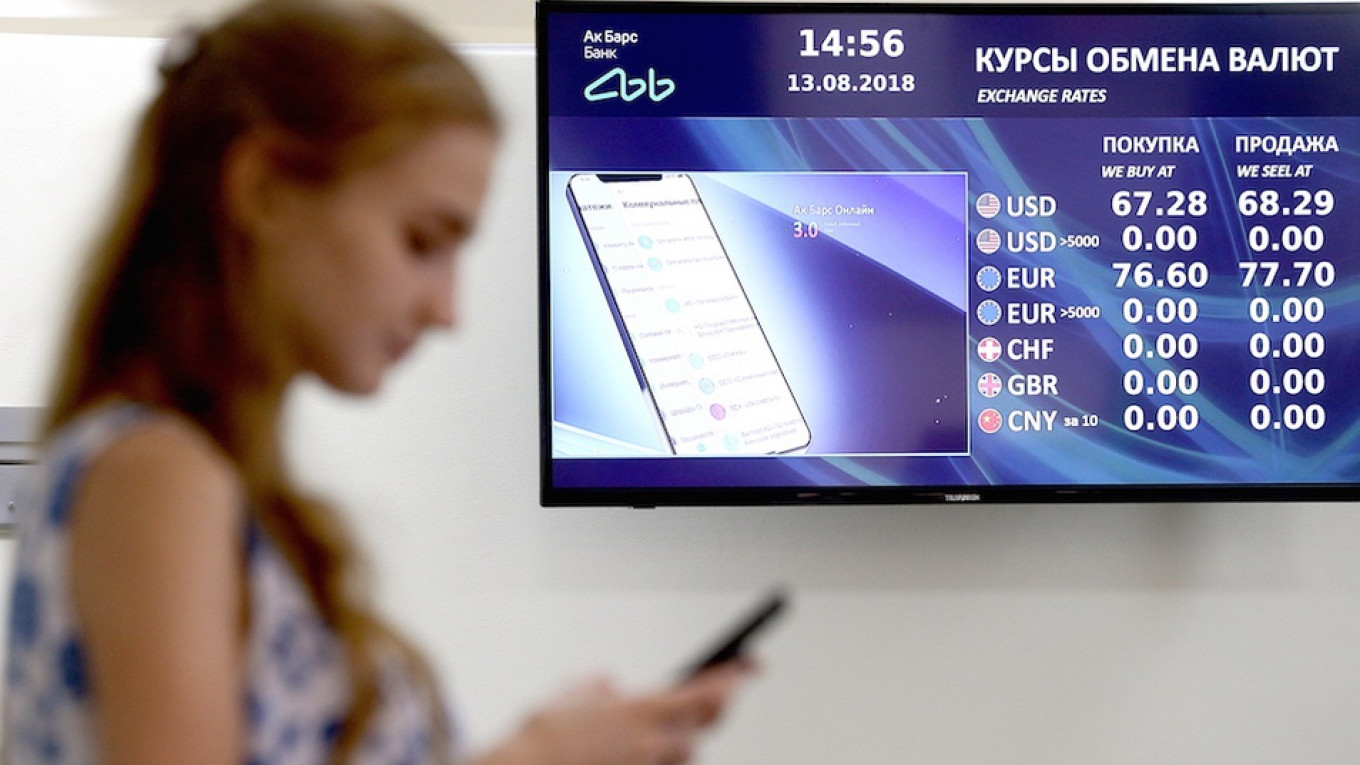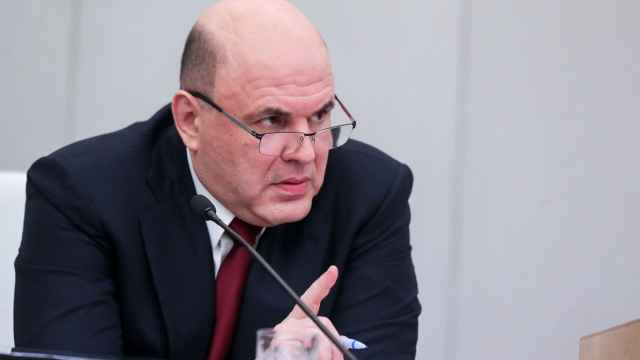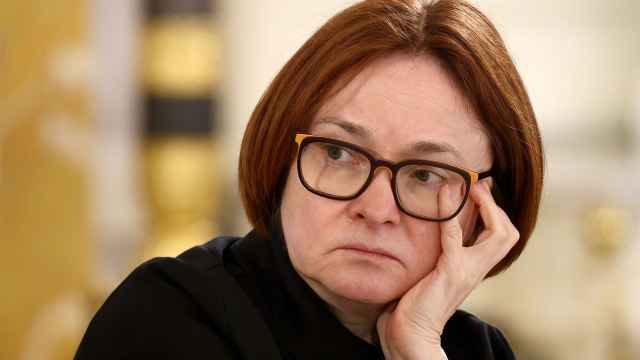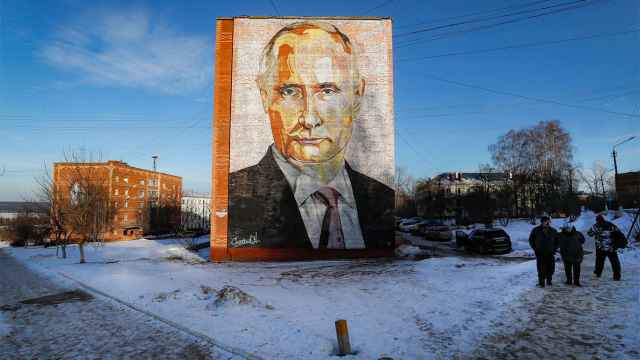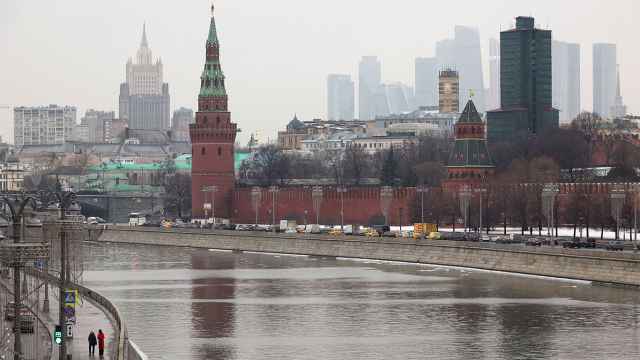Alexei Nikolayev, one of more than 56 million Russians who re-elected President Vladimir Putin in March, is already counting the likely cost of a weaker ruble: less spending power abroad, higher prices at home, and another round of belt tightening.
But Nikolayev, a 56-year old graphic designer who enjoys foreign travel and imported wine, blames the West, not Putin, for the pain and has no regrets about voting for a politician he sees as the right man to guide Russia through troubled times.
"It's painful and it's unpleasant, but it won't change my politics," Nikolayev said of the ruble shedding 10 percent of its value against the dollar since the end of July, driven down largely by new U.S. sanctions on Russia.
"In fact, as strange as it may sound, it will only strengthen my convictions. They [the West] are trying to break Russia."
Nikolayev's view that Putin is not to blame is held widely among Russians, according to Stepan Goncharov, a sociologist at the Levada Center pollster.
"People don't really understand the dynamics behind it and the president, traditionally, is safe from criticism," Goncharov told Reuters.
The narrative in Russia that the ruble's slide is the result of a Western plot has direct echoes with Turkey, Russia's ally whose lira currency slid to a record low on Monday. Turkish President Tayyip Erdogan has said his country is the target of an economic war and has said Turkey will boycott some U.S. imports in retaliation.
In Russia, the falling ruble causes pain for some. The price of imported goods is likely to rise. Foreign vacations have also become more expensive.
Irina Turina, a spokeswoman for the Russian Travel Industry Union, said travel agents had seen demand for package holidays fall by 10-15 percent last week because of the ruble's volatility.
"People who have not yet paid in full for their holidays are rushing to pay off the rest even if they have no obligation to do so," Turina told Reuters, saying people were worried that the outstanding balance would be recalculated according to a higher, less favorable exchange rate.
"People who have not yet bought package holidays are also pausing for thought," she said. "It's not just about paying for your holiday, you need spending money once you get there and people take dollars."
Sanguine Mood
Nevertheless, early and anecdotal signs suggest many Russians, long inured to a volatile national currency, are stoical, even defiant, in the face of a falling ruble.
Russian Foreign Ministry spokeswoman Maria Zakharova said last week that the sanctions on Russia had nothing to do with Moscow's behavior in places like Ukraine or Syria but were motivated by a U.S. need to keep economic rivals down.
That view finds favor with many Russians who have listened via state TV and taken in the Kremlin's anti-Western rhetoric for years.
Other Russians were simply sanguine about a ruble drop that has taken few by surprise because they have seen worse before.
"Nothing is forever, things will change somehow," said Moscow resident Gennady Tsurkan. "Everything will always change for the better. I think that these days are not far off, I believe that."
The fall in the ruble is much less severe than the currency crisis after 2014, when an economic slump coincided with the fallout from Russia's annexation of Ukraine's Crimea.
Russia's exposure to ruble fluctuations is significantly less than it was four years ago.
Since that time, Russian companies have reduced their foreign borrowing, the state has cut the amount it needs to raise on Western debt markets, and the country imports fewer goods that it needs to pay for in dollars.
Putin's still-high approval rating has slipped in the past few months, but pollsters put that down to an unpopular proposed pension reform, not the weakness of the ruble.
Pollsters say while the ruble's weakness may fuel an emerging sense of discontent among some Russians sparked by the pension reform, it is unclear if it will catalyse protests or influence a political landscape which Putin has bestrode for over 18 years.
"If it does have an effect, it will be an indirect one, magnifying discontent over falling living conditions," said Levada Center's Goncharov.
Nikolayev, the Putin-supporting graphic designer, was philosophical.
"It's like sunshine or snow. I can't influence it. Maybe I'll have to drink a different kind of wine. Or maybe I'll have to buy one instead of two pairs of shoes. It's painful but not that painful."
A Message from The Moscow Times:
Dear readers,
We are facing unprecedented challenges. Russia's Prosecutor General's Office has designated The Moscow Times as an "undesirable" organization, criminalizing our work and putting our staff at risk of prosecution. This follows our earlier unjust labeling as a "foreign agent."
These actions are direct attempts to silence independent journalism in Russia. The authorities claim our work "discredits the decisions of the Russian leadership." We see things differently: we strive to provide accurate, unbiased reporting on Russia.
We, the journalists of The Moscow Times, refuse to be silenced. But to continue our work, we need your help.
Your support, no matter how small, makes a world of difference. If you can, please support us monthly starting from just $2. It's quick to set up, and every contribution makes a significant impact.
By supporting The Moscow Times, you're defending open, independent journalism in the face of repression. Thank you for standing with us.
Remind me later.



